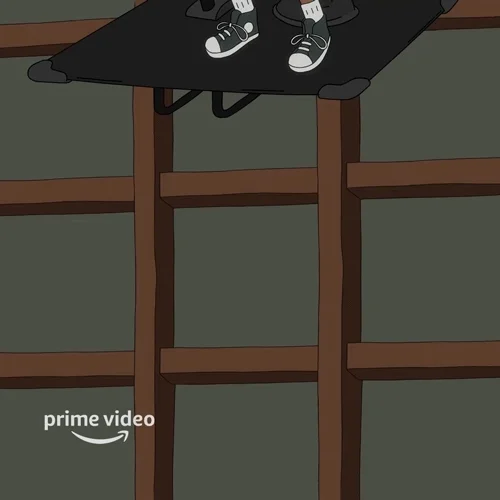
This logo isn't an ad or affiliate link. It's an organization that shares in our mission, and empowered the authors to share their insights in Byte form.
Rumie vets Bytes for compliance with our
Standards.
The organization is responsible for the completeness and reliability of the content.
Learn more
about how Rumie works with partners.
So you love movies...maybe you have big dreams of making your own films.
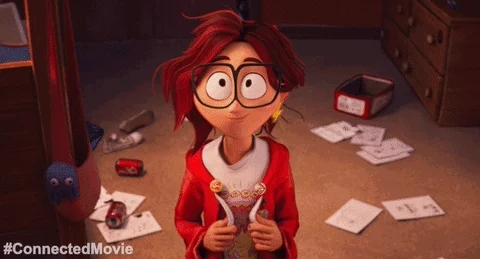
When I was in my final year of high school, I had the same passion. When it came to choosing a major, film was really the only subject on my list, so I went to film school to follow my dreams.
If you're curious about studying film — whatever your motivations or career goals — a film degree will help you enter the workforce with a wide variety of skills and knowledge, especially if you're interested in visual media.
Why study film?
There are many different reasons why studying film might appeal to you. It just depends on what you want to do with your degree. But there are two sides to film that you need to consider:
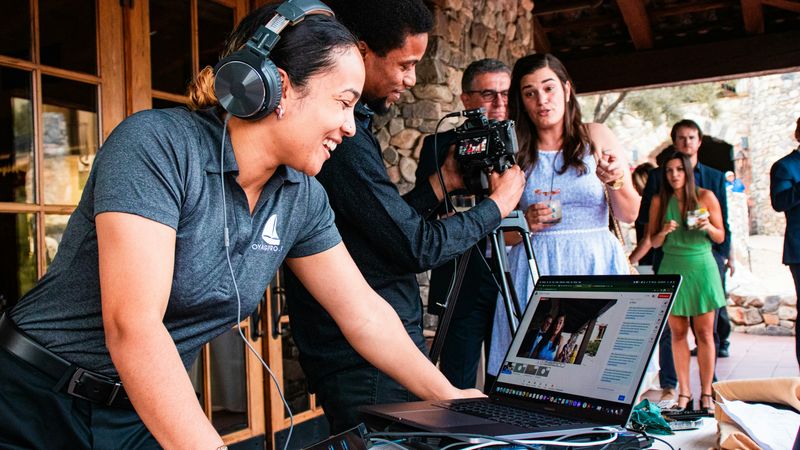 Photo by Voyage Pro on Unsplash
Photo by Voyage Pro on UnsplashProduction
If you want practical, technical, hands-on experience to prepare yourself for a career in the film industry, look for a program that's geared towards production.
You'll learn the fundamentals of production, practice with technical exercises, and make films. Many technical colleges or dedicated film schools offer these types of programs.
 Photo by Aneta Pawlik on Unsplash
Photo by Aneta Pawlik on UnsplashTheory
If you're more interested in the art of film, look for a more academic program (often called "film studies") at a university.
You'll focus on the scholarly side of film, covering topics like the history of cinema, film genres, and how films relate to wider culture. You'll watch and analyze films, write essays, and attend seminars.
Nowadays, many film programs offer a combination of production and theory. The university program I took had around 75% theory courses, but the 25% devoted to production meant I got to put the theories I learned into practice.
Did you know?
Nowadays, film programs are becoming more and more like media studies programs that incorporate the theory and production of TV, animation, online media, and recent innovations like AI and VR technology. Some schools also offer film as a minor program that you can combine with other majors like theatre or literature.
What will you learn in film school?

Visual
You'll learn all about "mise en scene", a key concept that looks at how visual media is created.
You'll discover how scenes are set up, how shots are framed, and how these choices affect the viewer's experience and the messages they receive.

Technical
If you're taking production courses, you'll learn how to use a camera (mainly video, as film as a medium is becoming rare).
You'll also get experience with sound recording, lighting, set equipment, computer editing and visual effects software, and video content for the web.

Analytical
You'll watch a lot of movies, experimental films, and even TV shows to learn about themes, genres, and trends.
You'll get the chance to look at films and other visual media through a critical lens.

Communication
You'll find yourself working on many group projects. You'll work together with classmates in studio or on location to make short films or work on technical exercises for practice.
For more theoretical courses, you'll discuss ideas in seminars and group presentations.

Multidisciplinary
Film is connected to so many different academic disciplines: history, business, technology, psychology, social issues, and more.
The scholarly aspects of film will give you a greater understanding of the world around you.
Quiz
Your screenwriting class is reviewing some short script assignments. You've been asked to give some feedback on a classmate's script, but it has some plot problems. How should you comment on the script? Select all that apply:
This scenario is an example of a "crit" or "critique" session. You'll be expected to give both positive and negative feedback in constructive ways. Offering solutions to plot problems can help your classmate make a stronger script.
Did you know?
In production courses, you'll attend seminars called "crit" or "critique" sessions. You'll comment on your classmate's work, and they'll comment on yours. Be prepared to give your peers constructive feedback, but brace yourself for challenging criticism from your peers and profs.
What career path can you follow?
You can work production roles on film and TV sets, starting off as a crew member in different departments (set/art design, camera, sound, wardrobe, etc), then work your way up to more advanced roles. You might find other opportunities in news, sports, live events, advertising, and documentary production.
You could also find post-production work in editing, effects, and sound departments.
If you prefer the business side, you can produce films and shows, where you'll find the money for productions and manage the production process. If you're interested in getting films out to the public, try marketing, sales, distribution, or film festival management roles.
 Photo by Jake Hills on Unsplash
Photo by Jake Hills on UnsplashIf academics are more your thing, you can get a Master of Fine Arts and later a PhD to become a film studies professor. You could use your experience on set to teach production courses. You might even find work as a film and video archivist.
You could even make a living in fan culture. Use your knowledge to write about film and TV for publications, or be a content creator with a film podcast or YouTube channel you can monetize. Check out TikToker Muny Rags, who has a large following for his commentaries on cinematic techniques:
Did you know?
Only about 25% of film school graduates end up working in the film industry — but even if you don't end up in the industry, film school can still be worth it. In my current job, I often make instructional videos to share with my colleagues, so my previous experience with online video production comes in handy!
How should you prepare for film school?
Look for programs that meet your needs. Do some research online, find some schools that offer film programs, and look at their course pages to see what you'll learn throughout your degree. Get in touch with current students to see how they like their program.
Make sure you can pay for it. Film school can get expensive, so make sure you can afford tuition. Look for scholarships and grants if you want to save on costs.
Analyze movies and shows. Watch them, try to understand what they're trying to say, and take notes on what you see and hear. Talk about them with your friends or get into a discussion on social media.
Read books and articles about filmmaking. Pick up a director's autobiography, find some articles by film critics about a movie or genre you like, and take notes.
Get creative! Get some production experience with the tools you have. Pick up your phone or digital camera, make a short movie, edit it, and post it online.
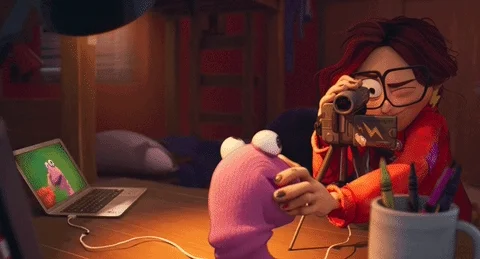
How can you succeed in a film program?
Get out of your comfort zone. You'll find yourself working on projects or analyzing films that you won't really enjoy. Just remember that you're in school to learn, and everything you experience has value. As one professor once told me, "You don't have to enjoy something to learn from it."
Try different things. Almost everyone starts out in film school wanting to be a director, but very few people actually go on to become one. In production courses, get your feet wet with different technical skills and roles. It's good to be a jack of all trades!

Make connections. Your classmates, professors, and instructors will all have valuable ideas and skills you can learn from them. They can also help you find jobs after your program ends.
Manage your time well. You'll have a lot on your plate, from course readings to production schedules to assignment deadlines. Keep your calendar up to date and make sure you dedicate enough time to your course work.
Find internship opportunities. Some schools offer internship experience as credit, so you can build direct job skills in the field while completing your degree.
Quiz
Imagine you're in your first year of film school. The courses are mostly theory and you want to get more production experience, but you have limited time and funds. What can you do? Select all that apply:
A full time job might be too much to balance with your schedule, and switching programs can be time consuming and expensive. There are many ways to get more practical experience with production by helping friends with projects and making your own videos.
Did you know?
I found an internship in an unconventional place: a video lab at a university dental school. While it wasn't glamorous, I got invaluable hands-on practice setting up and shooting videos in a studio. It was definitely out of my comfort zone but worth every minute of my time!
Take Action
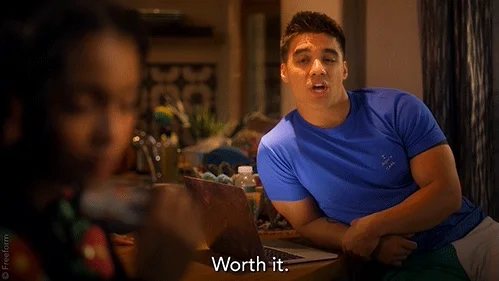
While my career path went in a different direction from the film industry, I would do it all over again. I work in the education field now, but I learned so much in film school that I still use today. I don't regret my choice for one second!
If you think film school is the right place for you:
This Byte has been authored by
Steve Birek
Director of Learning Content at Rumie

